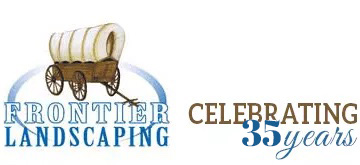Choosing a Focal Point Tree for Your Landscape
Focal point trees are trees that you can plant in your landscape that catch your eye and create beauty and drama throughout the seasons. Ideally, they shouldn’t be too big, unless you have a large property. Plant fairly close to your house, courtyard, or patio for maximum enjoyment. They can be planted in the ground – in a lawn, planting bed, or along a path. Depending upon the layout of your yard, another option is to plant in containers or raised beds.
Ideally, you’ll want to be able to glance out of your window and enjoy spring or summer flowers or bright fall colors. Focal point trees are usually broad-leaved deciduous trees that will bring seasonal change in the spring through to the fall. Some trees may even provide winter interest, providing interesting, leafless silhouettes and bark textures.

Show Stopping Spring, Summer, and Fall Color
There are quite a few small or medium sized tree choices that will provide you with almost year-round interest in the garden. Trees such as redbuds, ornamental cherry trees, crape myrtles, and even Japanese maples will give you enjoyment for much of the year.
Enhance Your Focal Point Landscaping with these Vibrant Tree Selections:
Redbud (Cercis canadensis)
There are many new cultivars of the Eastern redbud now available. Some are upright and some weeping, with beautiful cascading branches. Redbuds bloom in early spring with bright lavender-pink flowers along the branches, before the attractive, heart-shaped leaves unfurl. These trees are wonderful for wildlife and pollinator gardens, as they attract bees and hummingbirds, and birds feed on the long seed pods. Redbuds fit in well with PNW and woodland garden design styles.
- Cercis ‘Forest Pansy’ is a beautiful upright tree that grows 20-25’ tall and wide. It provides a show-stopping flower display in the spring. This is followed by striking burgundy leaves, and then a glowing golden yellow foliage display in fall.
- Cercis ‘Ruby Falls’ grows to around 6-8’ tall and 5-6’ wide. Like ‘Forest Pansy’ it also has the delicate, typical pea-family flowers clustered along its weeping branches in spring. These are a slightly pinker hue than those of ‘Forest Pansy’. The blooms are followed by deep purple leaves emerging along the branches, creating a wonderful cascading display in spring and summer. This is followed by luminous yellow fall color. The bare silhouette also provides interest in a winter garden.

Japanese Maples (Acer species)
Japanese Maples are an obvious choice for a focal point tree. There are plenty of cultivars that are small, both upright and weeping. They work well in Japanese-style gardens, woodland, or PNW gardens. Here are a couple of notable ones:
- Acer ‘Emperor 1’ is a wonderful choice for the Pacific Northwest. It grows up to 10-15’ tall and wide. The open, elegant crown doesn’t need much pruning. Its leaves emerge bright red in spring, deepening to an attractive purple. Plant where the tree can be backlit by early morning or late afternoon sun, which makes the foliage glow. The fall foliage display is a spectacular crimson red.
- Acer ‘Orangeola’ is a lace leaf maple and a spectacular choice for a focal point tree in a courtyard or small garden. It is also a good option to grow in containers or in the ground. It grows 4-8’ tall and 3-7’ wide. The leaves, which are deeply divided, emerge bright orange in the spring. They mature to a deep red, with highlights of green and orange in the summer. A fantastic burnt orange and fiery red appears in the fall.
- Acer ‘Sango Kaku’ is a great choice for year round interest. It grows to a height of 15-25’ tall and 15-20’ wide. This Coral Bark Maple provides a stunning upright silhouette in the winter with it’s beautiful orange-red bark. The leaves emerge a beautiful light green in the spring. In fall, the leaves turn a light, luminous yellow with tinges of orange, pink, and red at the margins.

Frontier Landscaping can help you to enhance your property with focal point landscaping and aid you in planning and installing your landscape. Contact Frontier Landscaping today for more information.

